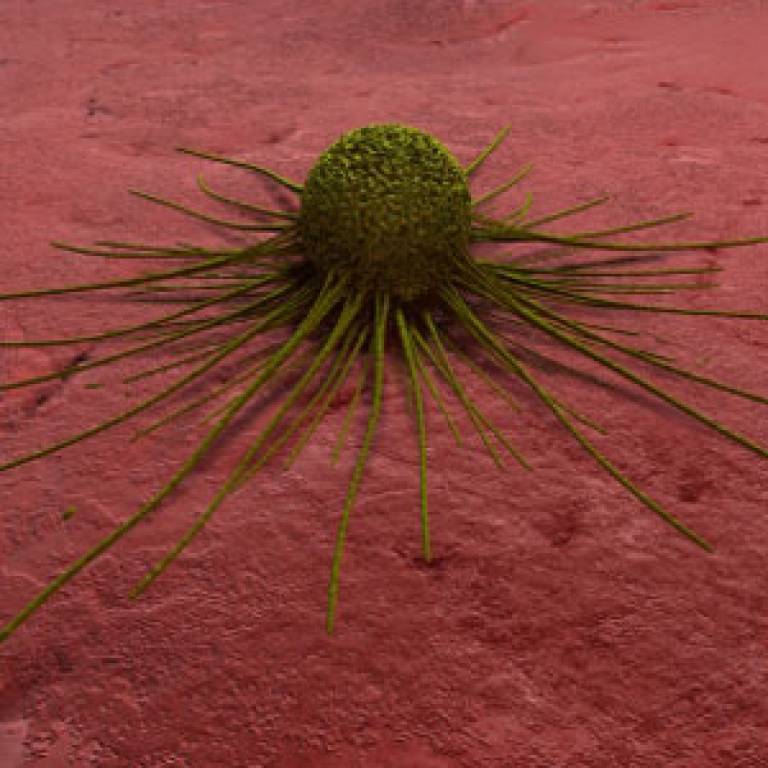Genes 'decide who wins in body's battle against cancer'
13 July 2010
Links:
 ucl.ac.uk/lmcb/" target="_self">MRC Laboratory for Molecular Cell Biology
ucl.ac.uk/lmcb/" target="_self">MRC Laboratory for Molecular Cell Biology
UCL researchers have discovered that two genes, called Mahjong and Lgl, could be star players in helping to identify how the body's own cells fight back against cancer cells.
This discovery could lead to future treatments to make healthy cells better-equipped to attack cancer cells, an entirely new concept for cancer research.
The team, funded by the Medical Research Council (MRC) and based at the MRC Laboratory for Molecular Cell Biology and Cell Biology Unit at UCL, have proven that normal cells and cancerous cells compete in a game of 'do or die'. If the non-cancerous cells gain the advantage and entirely surround the cancer cells, the cancer cells will die. If, however, the cancerous cells manage to break free, they will continue to divide and grow undisturbed.
The study shows that the Lgl and Mahjong genes play a huge role in the cells' competitiveness, influencing the outcome over which cells will die. This kind of cell competition had previously been shown to occur in flies; however, this is the first time it has been seen in mammals.
This discovery could lead to new kinds of treatments for carcinomas, tumours which make up more than 80 per cent of all cancers. Carcinomas originate from the epithelial cells that make up tissues such as our lungs, our glands and our digestive system.
Dr Yasuyuki Fujita, group leader at MRC Laboratory for Molecular Cell Biology and Cell Biology Unit at UCL, is thrilled by the results: "This is the first time that we have seen cancer cells being killed simply by being surrounded by healthy cells. If we can build on this knowledge and improve our understanding of how this happens, in the future we may be able to find a way to enhance this ability and develop a totally new way of preventing and treating cancer."
Fundamental medical science is critical to understanding the human body's natural resilience to disease such as cancer and to guiding the development of future treatments.
For more information about the MRC Laboratory for Molecular Cell Biology and Cell Biology Unit at UCL, follow the link above.
Image: Cancer cell.
Related stories:
UCL excels at Medical Research Council applications and awards
Doctors 'must lead fight against inequality and injustice'
 Close
Close

